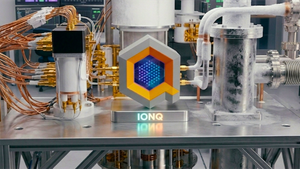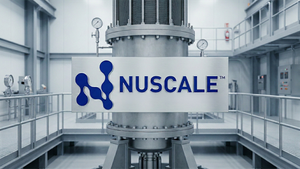--News Direct--
Learn More about Pasithea Therapeutics by gaining access to the latest research report
Vaccines that boost the body’s immune system against foreign proteins are different than those that are an inverse vaccine fighting an autoimmune disease.
The latest study from Pasithea Therapeutics Corp. (NASDAQ: KTTA) focuses on the latter. Pasithea is a biotechnology company focused on discovering, researching and developing new and effective treatments for psychiatric and neurological disorders.
Pasithea recently announced encouraging preclinical results that support the efficacy of a tolerizing DNA vaccine for multiple sclerosis (MS). Based on its experiments conducted with Hooke Laboratories Inc., Pasithea reported that intramuscular injections of the candidate vaccine (PAS002) delayed the onset of paralysis and reduced peak disease severity. Prophylactic administration also reduced the incidence and severity of relapse in the mouse model.
According to the National MS Society, nearly 1 million people are living with MS in the United States, which is more than twice the original estimate.
“The results of this study show that this technology has the potential to tolerize GlialCAM, a myelin molecule that has molecular similarity to the Epstein Barr virus (EBV) that triggers MS,” Pasithea Chairman and National Academy of Sciences Professor Lawrence Steinman said.
Steinman is a globally recognized authority in MS, and his research led to the development of the drug Tysabri, which is approved to treat patients with MS and Crohn's disease.
“Remarkably, the piece of GlialCAM protein shared between EBV and white matter in the brain is also found in the pox viruses, including monkeypox,” Steinman said. “Monkeypox is rarely associated with brain inflammation, and this new technology may prove useful for brain inflammation caused by certain viral infections.”
GlialCAM Molecules Mimic Epstein Barr
Earlier this year, a study in the leading science journal Nature showed that a molecule called GlialCAM found in the brain’s white matter is attacked in MS. GlialCAM shares a component of its protein structure that mimics an identical component of the Epstein Barr virus Nuclear Antigen-1, which plays a critical role in triggering MS.
In Pasithea’s proof of concept study, relapsing paralysis was established in a mouse model of relapsing-remitting experimental autoimmune encephalomyelitis (EAE), the standard animal model of MS. In three groups, a proprietary DNA cassette was engineered to encode GlialCAM and injected to block acute disease and its relapse.
Pasithea reported that these DNA molecules were designed to protect against paralytic disease by tolerizing the immune system so it would not attack myelin in the brain and spinal cord. The engineered DNA molecule created tolerance and worked as an inverse vaccine.
There are currently 15 vaccines actively under development for Epstein-Barr virus, most in preclinical stages. The vaccine is a recombinant vector vaccine that uses the same technology that AstraZeneca plc (NASDAQ: AZN) and Johnson & Johnson (NYSE: JNJ) used in their COVID-19 vaccines. Moderna Inc. (NASDAQ: MRNA), meanwhile, has started testing the vaccine mRNA-1189 in Phase I studies but does not indicate MS, though the company believes it could potentially assist in prevention.
Pasithea’s data showed that the engineered DNA plasmids provide a high level of efficacy in reducing disease severity and incidence of relapse when administered prophylactically in the EAE model, a widely used relapsing-remitting model of MS.
"Although early stage, we believe these results demonstrate the promise and validity of our tolerizing approach, which is built on recent data on the biological mechanism linking infection with EBV with the development of MS,” Pasithea CEO Dr. Tiago Reis Marques said. “We have filed a provisional patent application, and we will continue to rapidly pursue the PAS002 drug development program.”
The study was conducted at Hooke Laboratories, an independent full-service contract research organization with deep experience in the EAE animal model of MS.
At future international conferences, Pasithea plans to present its study data, including histology data and plasma inflammatory markers. The company will also submit complete data for peer-review publication.
For more information on Pasithea Therapeutics, visit www.pasithea.com.
Pasithea Therapeutics Corporation is a biotechnology company focused on the discovery, research and development of new and effective treatments for central nervous system (CNS) disorders. With an experienced team of experts in the fields of neuroscience and psychopharmacology, Pasithea is developing new molecular entities for the treatment of psychiatric and neurological disorders, including Amyotrophic Lateral Sclerosis (ALS) and Multiple Sclerosis (MS). Pasithea addresses the needs of patients currently suffering with mental illness by providing access to IV ketamine infusions both in clinics and in-home settings.
This post contains sponsored advertising content. This content is for informational purposes only and is not intended to be investing advice.
Contact Details
TraDigital IR- Camille Baptiste
Company Website
View source version on newsdirect.com: https://newsdirect.com/news/biotech-company-pleased-with-results-of-early-testing-demonstrating-vaccine-potential-for-multiple-sclerosis-750370919





